
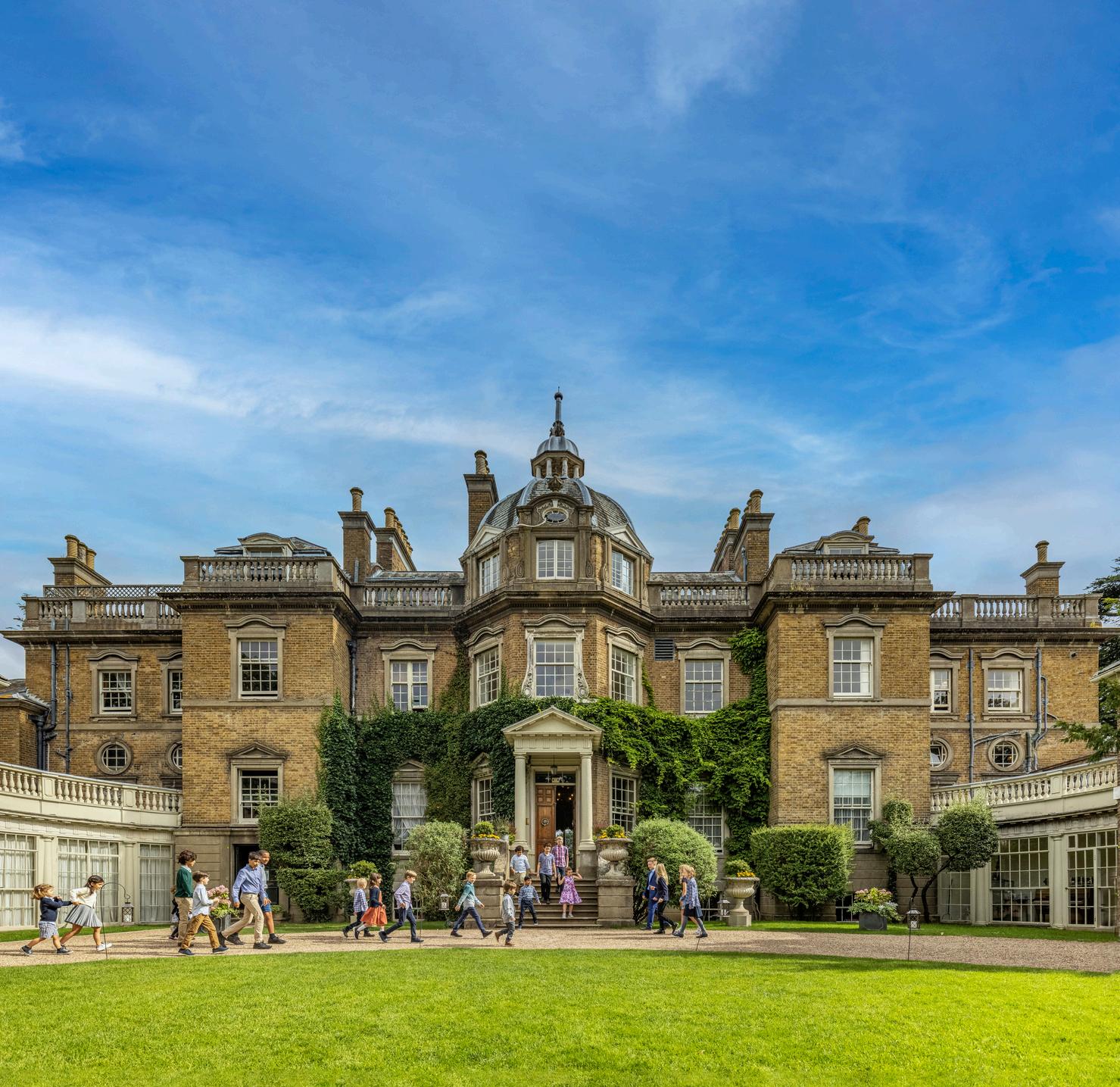
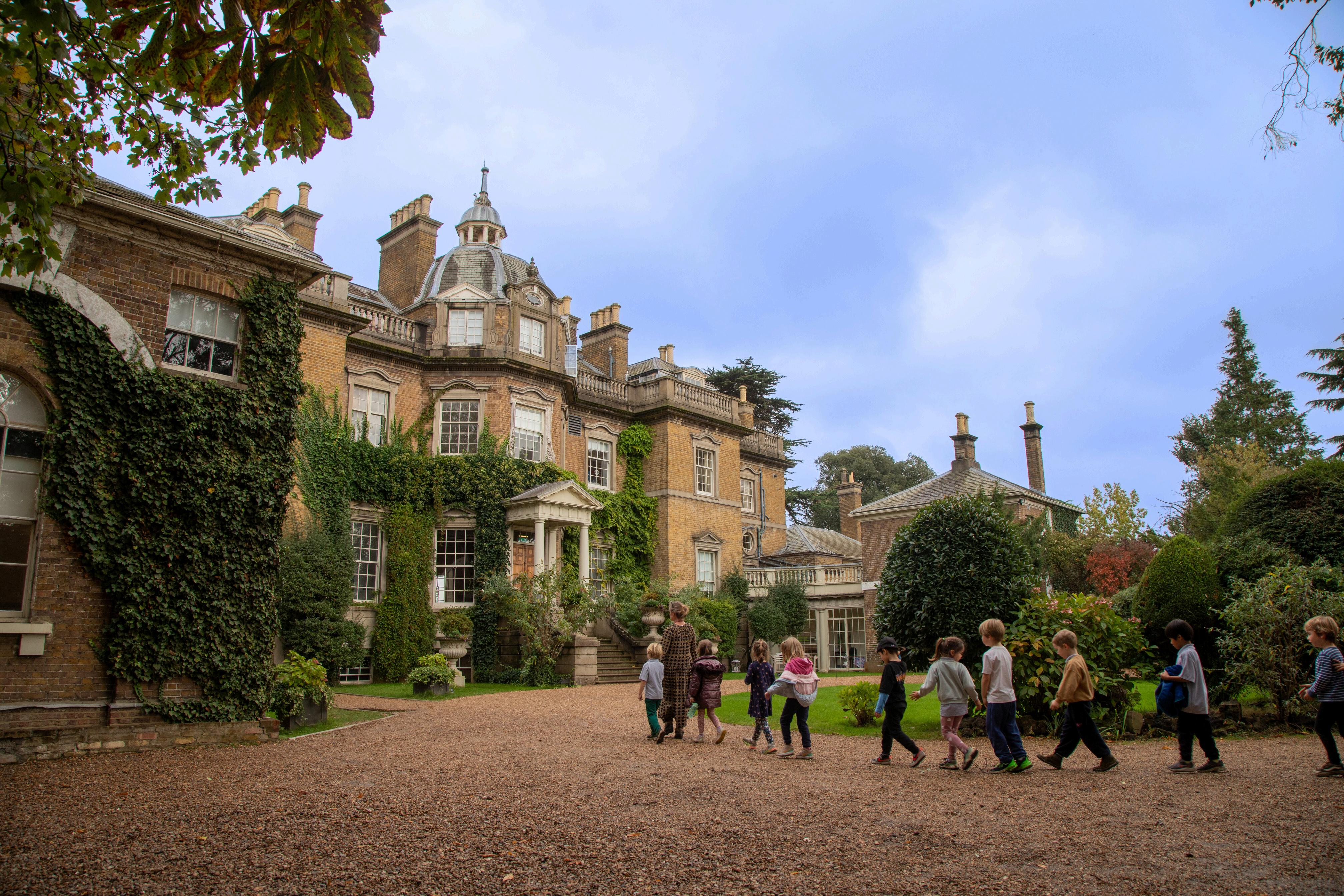

Art & Performing Arts
Découverte du monde
English Forest School
French Harmony Maths
Susie Byers Head of Prep
sby@hchnet co uk
Key contacts
Laura Dédelot
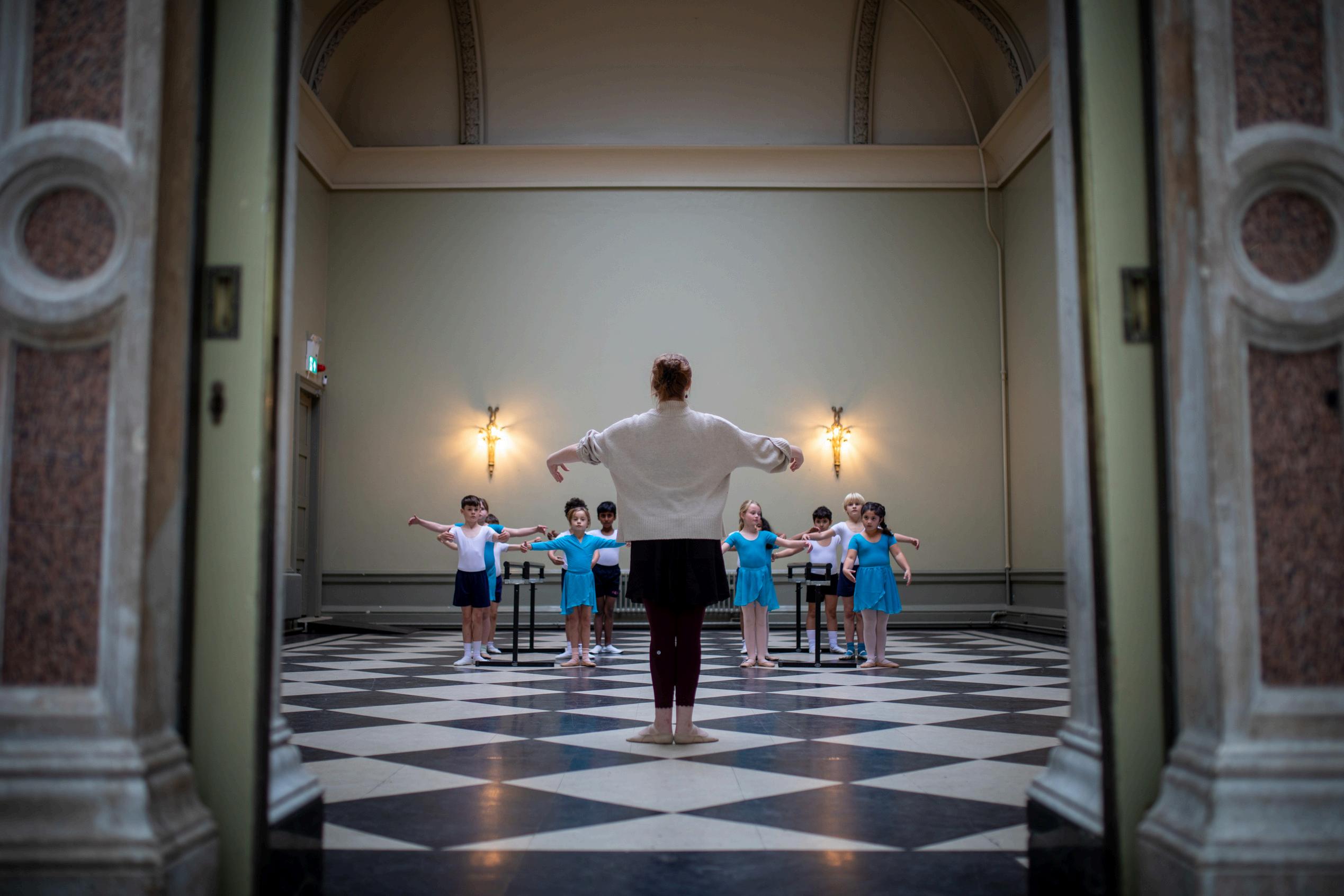

Art
Pupils will be learning about the inspiring characters created by textile artist Donna Wilson this term In response, they will draw on their imagination and creativity to design and stitch their own hand puppet. Pupils will work to improve their scissor skills and learn new sewing skills, using a simple running stitch to attach the fabric together
In preparation for the end of term Festival of the Arts production, pupils will be working on a collaboration to represent the painting Midsummer Eve, 1908, by Edward Robert Hughes Observing colours and tones in the painting, they will learn about the ancient customs of Midsummer’s Eve and create their own fairies and elves to add to the painting.
Performing Arts
In Performing Arts in the summer term students will be working on pieces for the summer show ‘The Exhibition ’ in each discipline they will be creating a piece based on a famous painting, so each class will have a poem, dance and song to perform at Hampton Theatre on 3rd July. Students will learn how to learn lines, choreography and music They will learn rehearsal techniques and gain confidence while also experiencing what it is like to perform on a professional stage.
Achievement with heart.
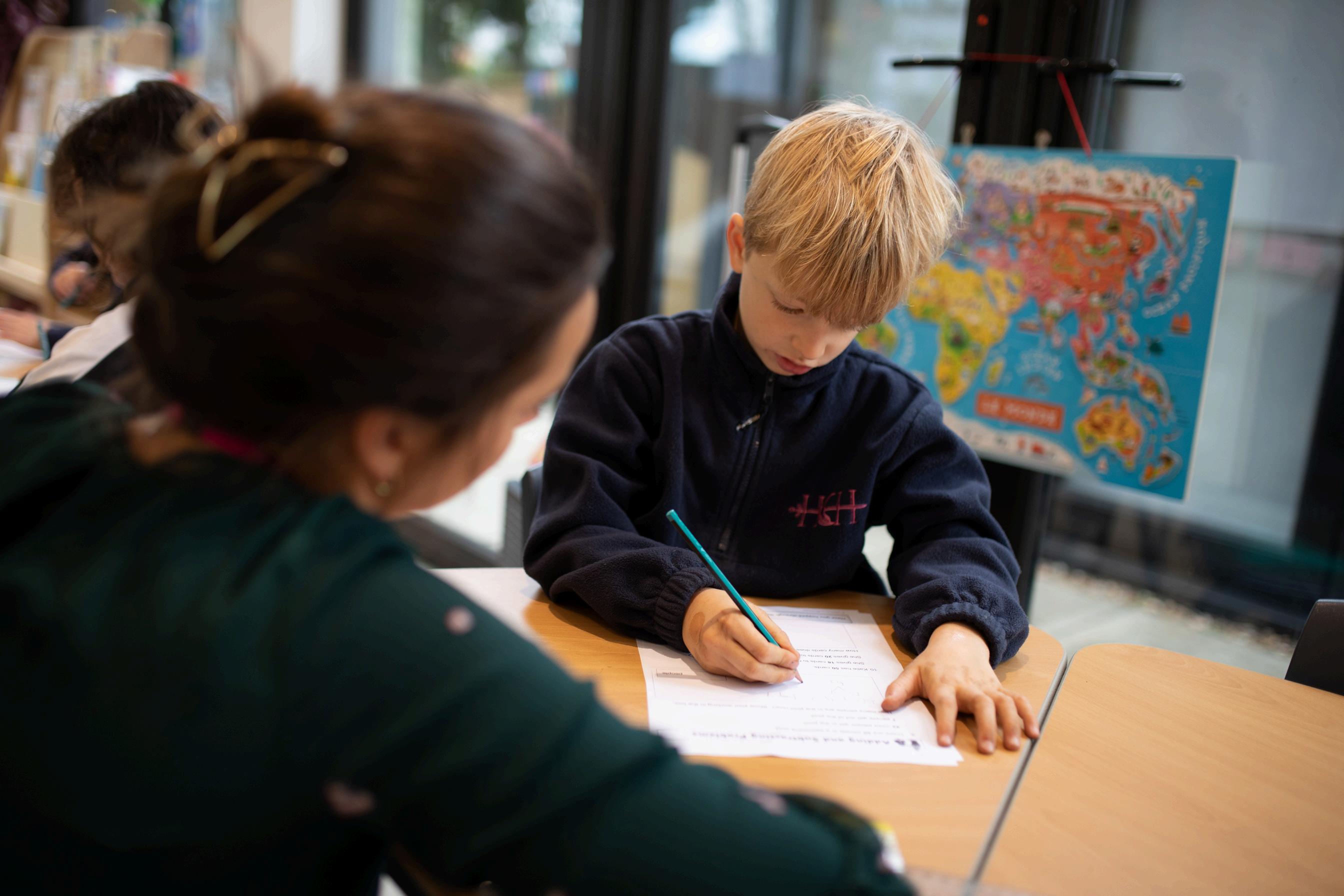

Découverte du monde
Pupils will have a real-life experience by taking care of ducklings and caterpillars, as well as adapting their behaviour in order for the ducklings to gain their trust Pupils will deepen their understanding of the subjects of Humanities learning first notions of History, Geography and Biology
History
We will identify the characteristics of habitats of human beings through an understanding of historical concepts such as continuity and change, cause and consequence, similarity, difference and significance, and use them to make connections
Geography
We will interpret a range of sources of geographical information, including maps and use basic geographical vocabulary to refer to:
Key physical features (in French), including: beach, cliffs, coast, forest, hill, mountain, sea, ocean, river, soil, valley, vegetation, seasons and weather
Key human features (in French), including: city, town, village, factory, farm, house, school and shop
We will learn about geographical similarities and differences through studying the human and physical geography of a small area in the city or in the countryside Finally, we will list the reasons why it is important to protect the environment and respect all living beings
Science
During the Summer half- term, pupils will compare the mineral, vegetable, animal and human kingdoms We will learn how to identify the characteristics of living beings We will compare different habitats, describe cities, towns and villages
We will analyse the dietary relations between living beings and draw food chains. We will observe the interactions between animals and their environment We will familiarise ourselves with the nutrition pyramid and the food families
Finally, we will learn about the life cycle of ducks and butterflies from the egg to birth/metamorphosis To learn how to be responsible, taking care of them, feeding them
Achievement with heart.
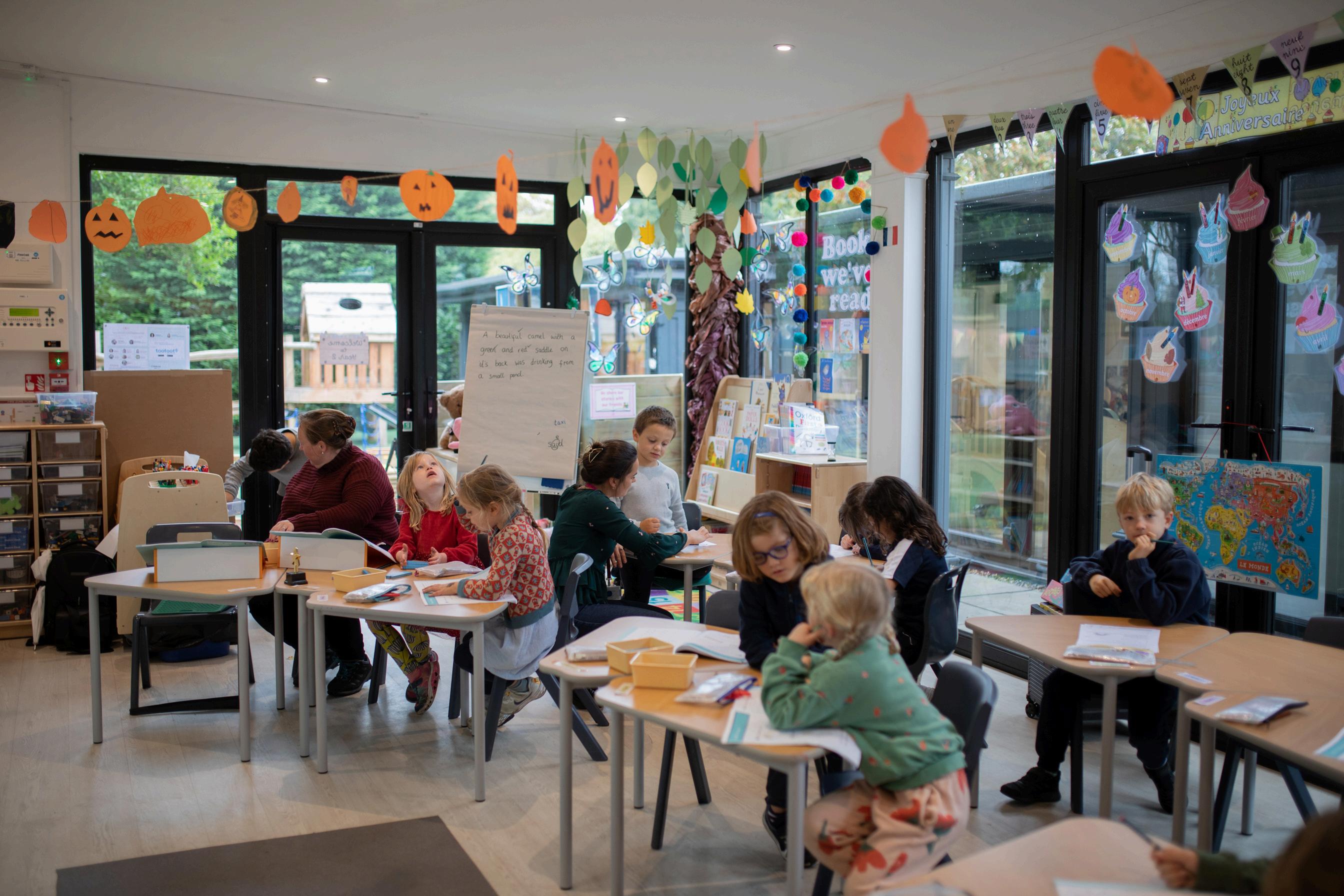

English
This term we are continuing our work with ‘Read, Write, Inc’ where the children will be learning and practising phonic sounds daily They then apply these with both reading and writing in rigorous, consistent and high-quality teaching and learning tasks
Reading
Read, Write, Inc Appropriate to every individual pupils ‘challenge level’ to enable maximum progress. Assessed half-termly and data used to inform groupings
Weekly Reading Comprehension Key skills focus: decoding, retrieval, understanding vocabulary.
Reading for Pleasure Weekly 1:1 reading with a teacher & reading with a peer
Writing (Read, Write, Inc)
Children write sentences based around the book they are reading each week They practice ‘hold a sentence’ where the teacher tells the children what to write and they use their phonics knowledge to sound out each word They proofread a sentence and practice finding mistakes and correcting them Finally, towards the end of the week, the children compose their own sentences to write about a given topic
Achievement with heart.
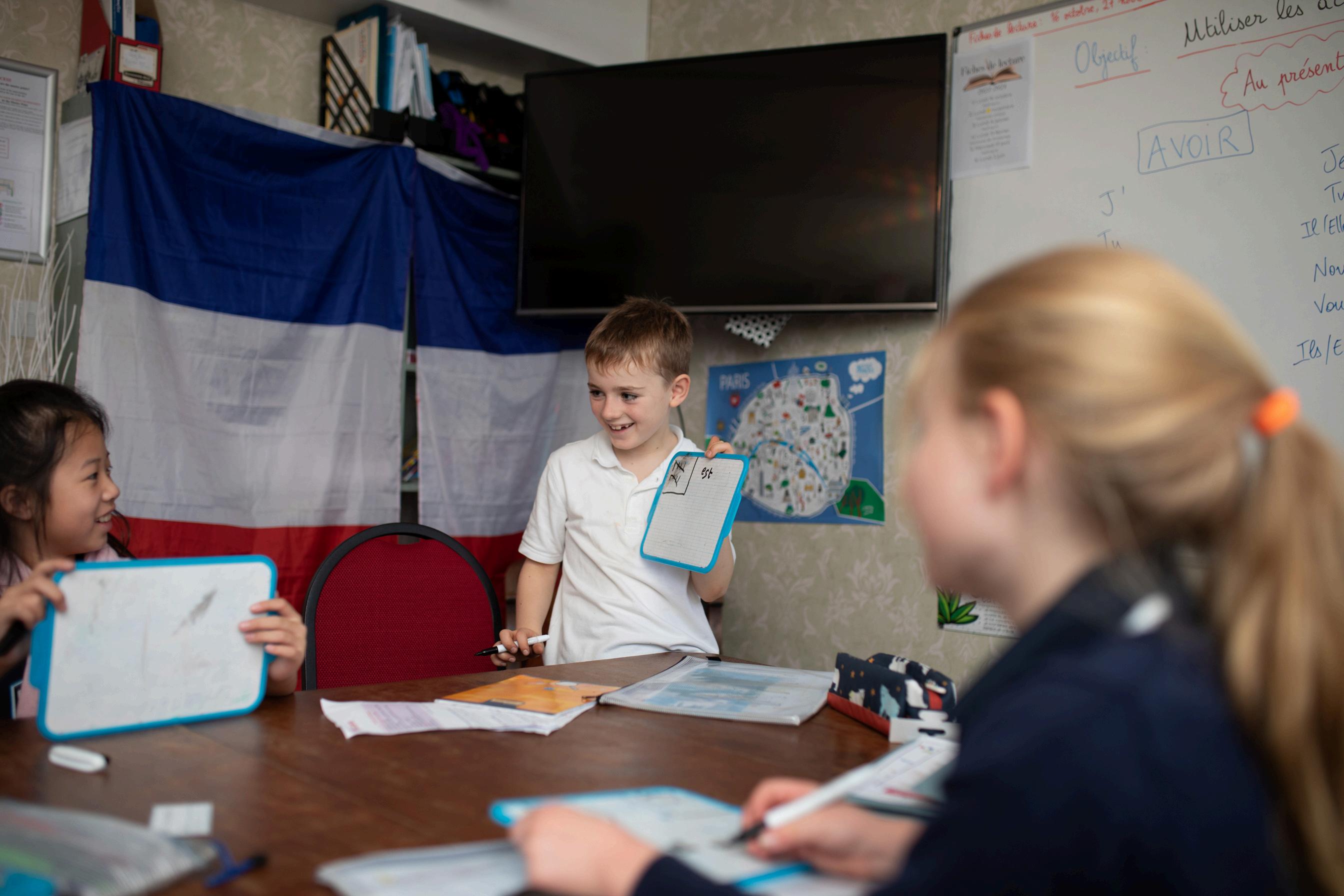

Forest School
The children will continue their outdoor learning through discovering nature in the grounds of HCH Through a variety of arts and crafts and activities such as cooking, children will mark key cultural festivals and days of environmental interest
French
The pupils will work on their French listening, reading, speaking, writing and grammar During the Summer term the pupils will learn new French vocabulary through Unit 6 of Les Loustics The topics will be clothing, the weather, Maggie's daily routine, travelling, holidays and transport To embed this knowledge, we will hear and watch different authentic audio clips and videos and sing songs We will also do some revision about the vocabulary learnt over the school year
We will develop pleasure in reading and understanding by learning how to read and discover new sounds in –[ɛ] / on – [ɔ] / am, em, im, om / oi [wa] - br / cr / dr / fr / gr / pr / tr (+ diagraphes) /bl / cl / fl / gl / pl (+ diagraphes)/ au – [o]/ ai, ei, et – [ɛ] / er, ez – [e] in French We will apply phonic knowledge and skills as the route to decoding words and simple sentences During the lesson, the pupils will answer questions and complete grammar exercises, as well as practise their cursive writing
Year 1 will also develop their cultural knowledge by reading and learning about Loup and listening to French stories
At the end of the term, we will also read some books through a reading rally
What is a reading rally?
It is an activity that allows pupils to read a set of books on a given theme They can then read at their own pace, the idea being that as the rallies progress, they can make progress by reading more and more With this activity, pupils participate in building a common literary culture (through the complete reading of works of various genres, drawn from traditional literature)
Sami and Julie
This is a rally for Year 1, for very young readers (reading simple sounds) The characters are still the same: Sami and Julie, as well as their parents and their dog Tobi Each level 1 book contains 32 pages; on each double page there is a sentence or two to read and an illustration Pupils will work in groups, read and answer questions
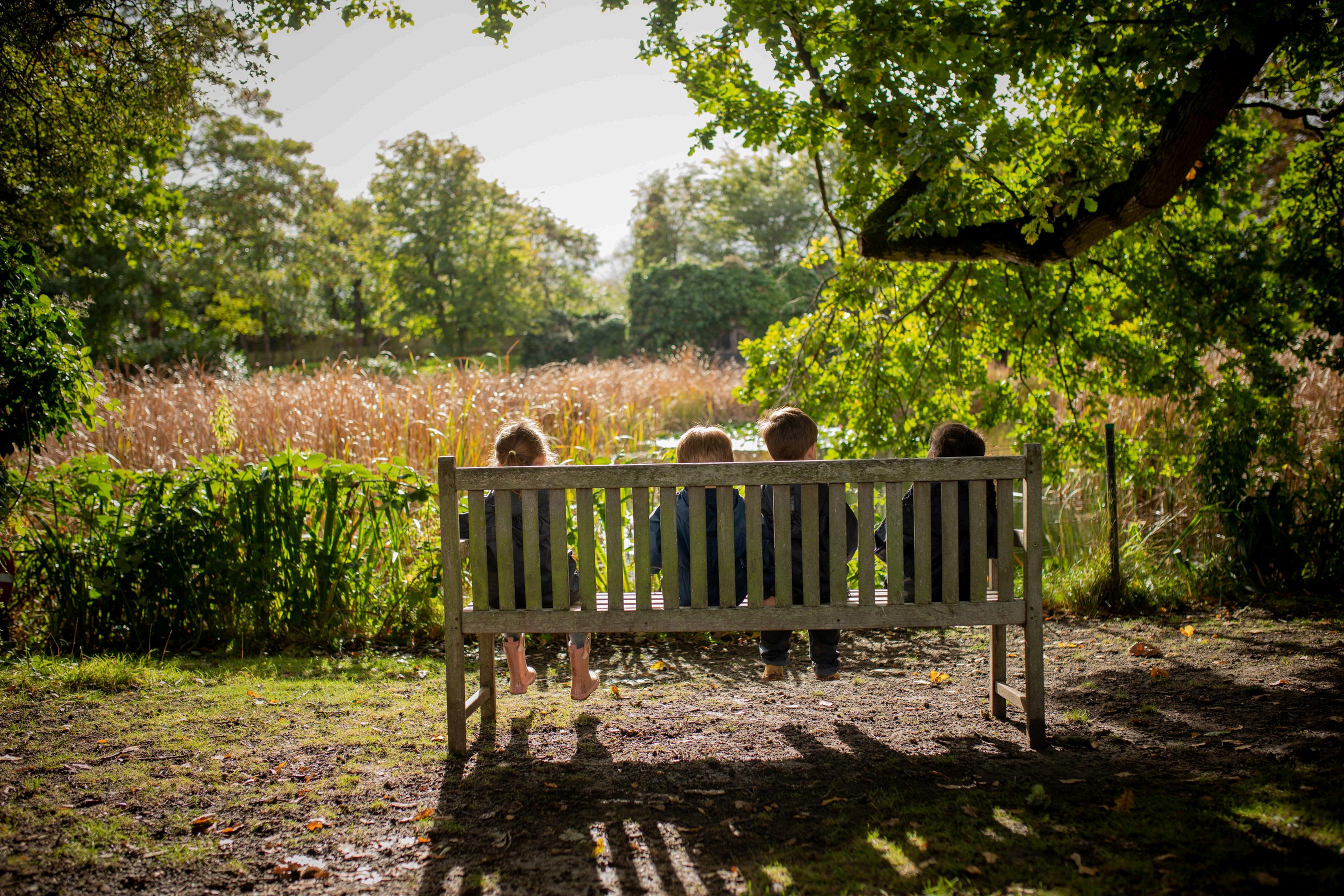

Harmony (Sustainable Thinking)
These lessons are designed to teach children about the Principles of Harmony in Nature and the importance of keeping this harmony in balance The Principles of Harmony are Interdependence, Natural cycles, Diversity, Adaptation, Health, Geometry, and Oneness The subject is explored by students through inquiries of learning, reading, and discussing stories, explorative walks in nature, and creative activities These questions are linked with their syllabus content each half-term and learning is interdisciplinary with Art, Maths, English, and Science subject knowledge development
This term’s theme will be Measurements Including Time
Summer 1: Oneness
Inquiry Question: What are everyday objects made of?
Students will explore materials and their properties through the examination of everyday objects and how these properties influence their use They will learn about the journey materials made before they become the objects we use Through this exploration, students will familiarise themselves with the characteristics of 3D shapes and their names
Summer 2: Interdependence
Inquiry Question: How are other living things (animals and plants) body parts adapted to their use?
Students will learn about the basic structure of animals and plants and how each adapted to their habitats They will explore how animals and plants are classified in accordance with their different characteristics
Maths
This term pupils will explore the new themes of multiplication {count in 2s, 5s, 10s}, division, fractions {recognise a half and a quarter of a quantity}, position and direction {left, right, forwards, backwards, above and below}
We will also learn about place value within 100 {partition into tens and ones, one more, one less and comparing numbers}, money {recognise coins, notes and counting} and time {understand days, weeks, months, hours, half an hour, minutes and seconds}
We will also revisit all key areas previously covered so that students are well prepared mathematically for their journey in Year 2 and beyond
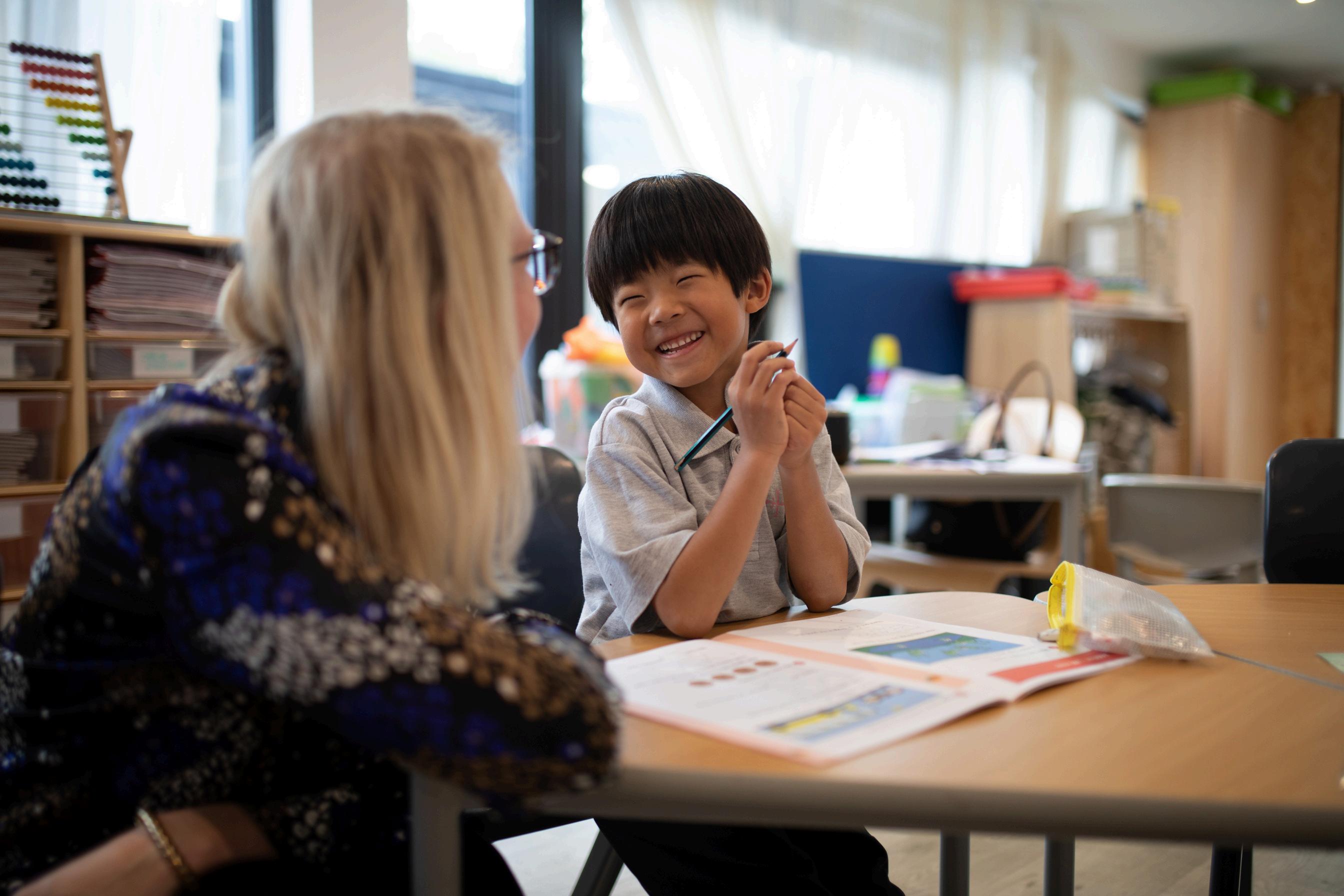

PE
In PE lessons in Summer Term 2024, Year 1 children will largely be outdoors, focusing on being introduced to, and developing their Athletics skills They will be working towards the enjoyment of, and participation and achievement in athletics and applying their skills to a Sports Day in the final half Term
Pupils will be learning the techniques of running, jumping and throwing skills as well as the basic rules for each competitive event They will learn basic differentiations in the skills required for running short distances and longer distances (sprinting versus sustained running) Pupils will be introduced to learning these sports skills at individual level as well as being a member of a team (for example relay races)
They will also be introduced to several age-appropriate throwing resources (for example foam javelins) and learn different techniques of using these and maximising the distances they can throw
The children will be encouraged, as always, to enjoy participating in sports and being active We will also be reinforcing the importance of setting and raising their own individual targets in terms of their timings and distances thrown A competitive team spirit will be encouraged as well as a sense of fair play
PSHE
In the first half of the summer term, we will be focusing on the Relationships topic, which explores families and understanding that there are many different types Friendships, including how to make friends and how to solve friendship problems when they occur As well as respect for others and treating people with kindness We will look at what makes a good relationship and how to help yourself and others when they are upset
In the second half term we will explore Healthy Me, in which we will discuss healthy eating and healthy choices, having a balanced diet and being physically active We will finish by looking at how to keep themselves safe, road safety and dealing with difficult situations
As always, our PSHE is delivered with a mindful approach, giving plenty of time for thinking, discussing and reflecting The lessons are delivered in an age-appropriate way and all resources are available to parents in advance upon request If you would like any further detail or information, please email Amy Burgess –acb@hchnet co uk

